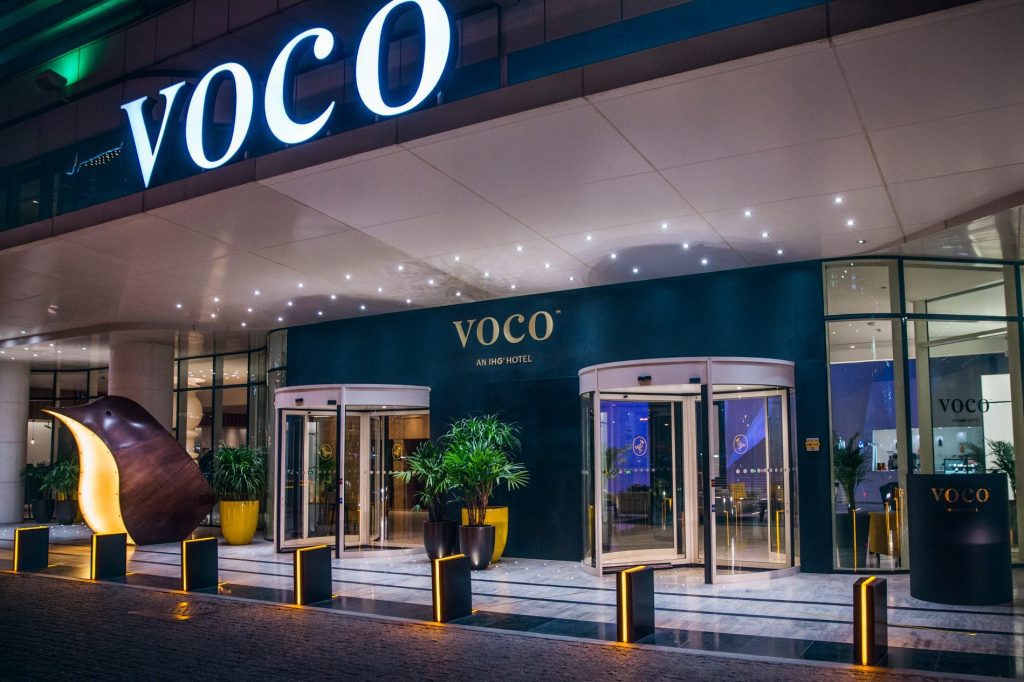Skift Take
Going by InterContinental Hotels Group's first quarter earnings update, there's good news coming out of the U.S. and China. But how Europe, the Middle East, and Africa respond to coronavirus over the next quarter will be critical to keeping that optimism alive.
There were no major shocks during InterContinental Hotels Group’s first quarter earnings update on Thursday; unexpected, though, was CEO Keith Barr’s high level of confidence.
Revenue per available room, or RevPAR, the hotel industry’s key performance metric, was down 24.9 percent year-on-year — a similar story to other brands, including Marriott.
March RevPAR was down 55 percent, with April expected to be down around 80 percent.
Get the Latest on Coronavirus and the Travel Industry on Skift’s Liveblog
The group has clearly been affected, with the downbeat numbers following a $150 million cost cutting exercise, announced at the end of last month.
But Barr pointed out several “bright spots” on Thursday’s earnings call.
Open For Business
In the U.S. — IHG’s biggest market with 3,750 mainstream hotels of its 5,900-strong portfolio — 90 percent of its properties are open.
There was good news from its other strongholds.
“We are in a net reopening environment,” declared Paul Edgecliffe-Johnson, chief financial officer and group head of strategy. “In China we had 180 hotels closed, but that’s now just 10.”
“It’s slowly moving in the right direction,” Barr added. “I talked to the team, and they saw a definite uptick over the (Chinese) Labor Day holiday. And our Six Senses hotel in China was almost sold out, and the same thing happened in Vietnam.
“We will see that uptick of leisure, and this gradual movement, but it really depends on how countries control the virus and the movement of people. In places like Australia and New Zealand, we expect to see a recovery coming. Businesses are reopening in China.”
Breaking Ground
The hotel giant is equally bullish over future growth and its development pipeline for the rest of the year.
It admitted growth will be slower than originally planned, but the group signed up 14,000 rooms (or 104 hotels) in the quarter, including 4,000 rooms in March. It’s total pipeline for the year stands at 288,000 rooms.
Meanwhile, IHG opened 10 hotels in the U.S. in April. In Greater China, construction work has resumed on 95 percent of sites that are due to open this year.
Predatory Mode
IHG also expects to take on more hotels that will have suffered during the pandemic.
“Customers will want to stay in branded hotel companies,” Barr said. “It will put headwinds on home sharing as well. You’ll see convergence, those weaker brands, or independents, convert over into the big branded players.
“We’ll look at the opportunities we have with Voco, Kimpton and Indigo. [They are] great conversion plays. Then the deal we agreed in Shaghaii, with Regent, is a conversion of a luxury hotel brand.
“They wanted to be a part of IHG, so that will be something to help us. But it’s really hard to have any visibility on what growth is going to look like in the next 12 months, until we have a sense of how countries will reopen.”
Automation Drive
IHG will also refocus efforts on its in-house reservation system, Concerto.
The technology platform allows hotels to offer different rates, products and services across different distribution channels, but it also gives them the ability to use features such as mobile pre-check-in and room keys, which in the early phases of recovery will reduce physical contact with staff.
“Technology will be important going forward. We’ve completed some of the alpha and beta testing for Concerto. The rollout schedule is going to be contingent on people travelling again, but it is a top priority for us,” Barr noted.
During the earning’s call, Barr and Edgecliffe-Johnson were quizzed over how the owners of its franchised hotels were coping with the crisis. IHG says its “asset-light approach” is one of its strengths, with its business model based on taking a cut of its franchised hotels’ revenue, not profit.
Barr replied: “The [financial] health of our owners is generally good. The vast majority of our portfolio is small businesses. The CARES Act in particular provided a great bridge in the U.S.
“Hotels break even at around 30 percent occupancy, and we’re running around the mid-20s right now. With government support, and the cost reductions we’re putting through, their health is good. Under pressure, but in a reasonably good place.”
IHG also has $2 billion of liquidity available, and Barr said this meant it could survive the next 18 months even at zero occupancy.
Travel Will Return
Meanwhile, Barr shared his view on the corporate travel sector.
“I don’t fundamentally believe it’s the end of business travel. Whether you’re using Zoom or Teams, that’s going to replace a lot of conference calls now, because people are enjoying using that technology. We struggled to get people to use Teams, now we have 800 people using it.
“Conferences, groups, meetings and events will come back over time. Business travel will return, and leisure travel will continue to grow.”
While the U.S. and China appear to be recovering, Barr and Edgecliffe-Johnson will likely be pouring over the European figures ahead of the second-quarter update to asses to what extent travel has grown exactly.
At the end of April, 560 hotels of its properties Europe, the Middle East and Africa remained close. That’s about 50 percent of its properties for the region. Come August, IHG will be hoping its optimism was justified.
Have a confidential tip for Skift? Get in touch
Tags: coronavirus, ihg, kimpton hotels, regent hotels, voco
Photo credit: The Voco hotel in Dubai. Parent company IHG has added a humber of new brands in recent times. IHG
